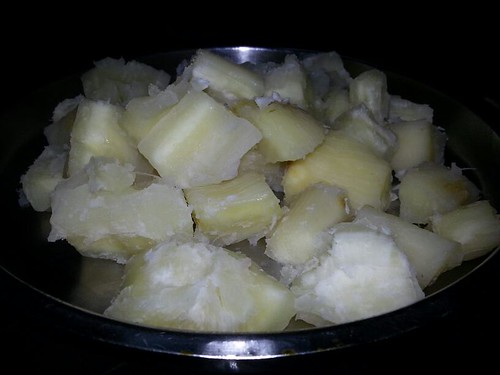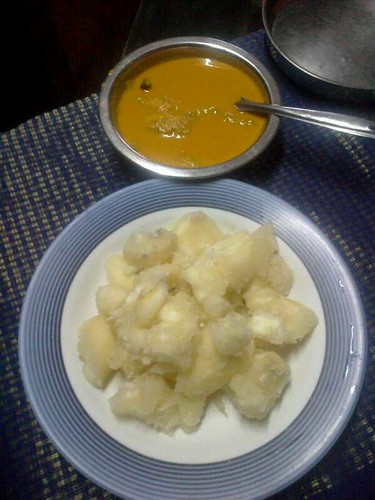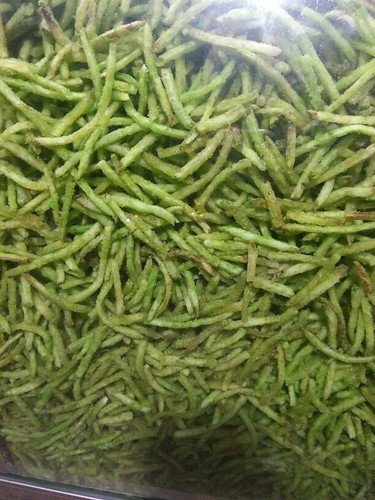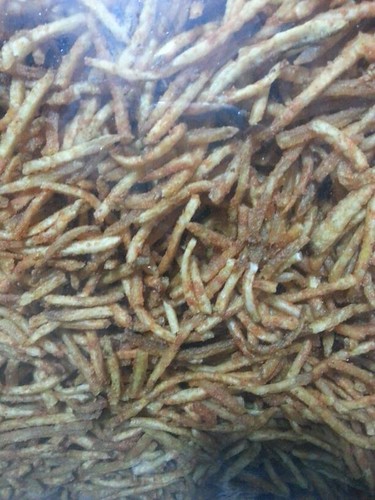Glossary K
The food glossary +++ Popular Articles: 'Kamias', 'Kinchay', 'Kangkong'
Kappa Puzhukku refers to one of the dishes from Kerala, India made from boiled/teameed mashed Cassava seasoned with different spices, such as Black Mustard seeds (called Kadugu in Malayalam) and Curry leaves and then served or paired with Pachadi, Beef Masala or other dishes like Erachi Olarthiyathu, or Curries.
Kappa Puzhungiyathu refers to boiled or steamed cassava which is called Kappa or Kappioka in Malayalam, the language in Kerala, India.
Kappa is one of the staple food in Kerala, India. They are cooked in varieties of way and one of them is by boiling or steaming then served with Chutneys or Curriesas a substitute for rice, paricularly for breakfast.
Kappa Puzhungiyathu can also be served with sugar and newly grated coconut for those who prefer sweet breakfast.
Kappa is called Kamoteng Kahoy in the Philippines. Boiled Cassava is called Nilagang Kamoteng Kahoy.
Kappa is prepared by removing the thick skin, then sliced into bite size pieces before steaming or boiling.


Picture below is an Indian housewife in Allepey, Kerala, India, skinning and preparing the Kappa before steaming/boiling


In the Philippines, we just boil Cassava (Kamoteng Kahoy) then served ith sugar as a dip or sometimes margarine or butter and sugar. We never eat boiled Cassava with savory sauces.
Kappioka/Kappiokka/Kappa Varuthath/Varuthathu refers to Indian savory snacks made from Cassava. They are formed like noodles and flavored with different spices, such as Masala powder and Curry leaves. They are also cooked as sweet snacks by adding sugar or Jaggery to the noodle-like snacks. They are deep-fried in Coconut Oil that make these snacks more delicious and tasty.
Noodle-like sweet and savory snacks are popular in India. They are also added to a savory mixture of nuts and Sev called "Mixture" in Kerala, India.
Kappioka/Kappiokka/Kappa Varuthath/Varuthathu simply means fried Cassava in different types and forms, like this noodle-shaped snacks
Here are the pictures of 2 kinds of Kappioka/Kappa Varuthath/Varuthathu which were one of the many sweet and savory snacks sold during Christmas midnight masses held in many churches in Kerala, India.


